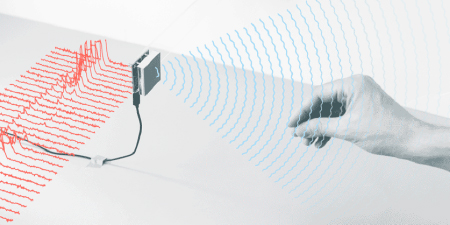Source: Google Jul 04, 2018 7 years, 5 months, 1 week, 5 days, 2 hours, 54 minutes ago
Diabetes management is slowly moving away from needles, finger sticks, and insulin pumps that intrude on a person’s life. Now, researchers from the University of Waterloo have developed a novel combination of radar and artificial intelligence (AI) technologies to help people manage diabetes more effectively and detect changes in glucose levels without having to traumatically poke the skin or draw blood.
The research was carried out by using Google’s Soli alpha kit. The Soli system, co-developed by
Google and a German hardware firm
Infineon, is a 60 GHz mm-wave radar that promises a small, mobile, and wearable platform intended for gesture recognition. By retrofitting the Soli, scientists were able to design a prototype that can detect minute changes in the properties of solutions with different levels of glucose and distinguish between different concentrations of the biomarker.
Radar works by sending out electromagnetic waves from a transmitter that reflect off an object (or in this case, a glucose solution) and return to the receiver, providing information about the object’s speed and location. The non-invasive glucose monitoring device first collects information via a receiver and then analyzes the results with machine-learning AI algorithms developed by the researchers. By testing and perfecting the system, the team was able to identify more than 500 wave features or properties, including how long it takes for waves to bounce back to the receiver.
Preliminary results indicated that mm-waves are suitable for glucose detection within biological mediums at concentrations similar to those found in diabetes patients.
George Shaker, an engineering professor who leads a large team working on the concept, said “We want to sense blood inside the body without actually having to sample any fluid. Our hope is this can be realized as a smartwatch to monitor glucose continuously.”
The potential applications of this system for diabetes management are far-reaching, essentially allowing patients to monitor glucose through the skin non-invasively, and with a high level of precision. By continuing their collaboration with Infineon, the team hopes to optimize the power consumption and reduce the cost of the radar device.
Study in International Journal of Mobile Human Computer Interaction: Non-Invasive Monitoring of Glucose Level Changes Utilizing a mm-Wave Radar System…
https://atap.google.com/soli/
